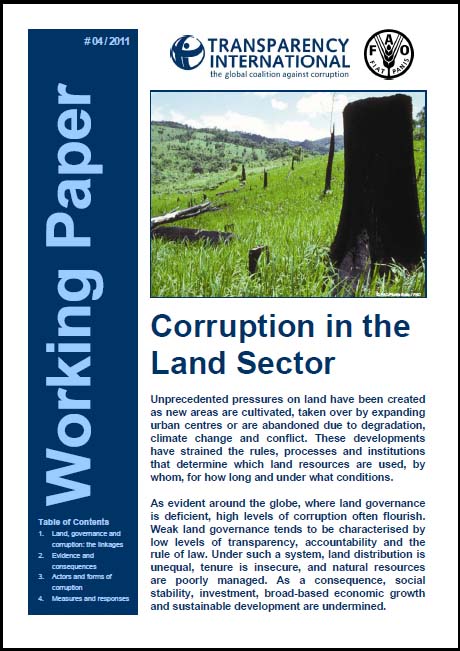Location
About
One global movement sharing one vision: a world in which government, business, civil society and the daily lives of people are free of corruption.
In 1993, a few individuals decided to take a stance against corruption and created Transparency International. Now present in more than 100 countries, the movement works relentlessly to stir the world’s collective conscience and bring about change. Much remains to be done to stop corruption, but much has also been achieved, including:
- the creation of international anti-corruption conventions
- the prosecution of corrupt leaders and seizures of their illicitly gained riches
- national elections won and lost on tackling corruption
- companies held accountable for their behaviour both at home and abroad
Mission
Our Mission is to stop corruption and promote transparency, accountability and integrity at all levels and across all sectors of society.
Vision
Our Vision is a world in which government, politics, business, civil society and the daily lives of people are free of corruption.
Values
- Transparency
- Accountability
- Integrity
- Solidarity
- Courage
- Justice
- Democracy
Programmes
For specific information about TI's work on land corruption, see here.
Resources
Displaying 36 - 40 of 46TACKLING FORESTRY CORRUPTION RISKS IN ASIA PACIFIC
This report is based on research carried out in five Asia Pacific countries – China, Indonesia, Malaysia, Papua New Guinea and the Solomon Islands. This document should serve as an instrument to help in Transparency International’s constructive but critical dialogue needed to fight corruption and build integrity in the forestry sector. As such it is aimed at civil society, the private sector, and government agencies, and all those who stand to benefit from improved forest governance.
WORKING PAPER 04/2011: CORRUPTION IN THE LAND SECTOR
Unprecedented pressures on land and its governance have been created. As evident around the globe, where land governance is deficient, high levels of corruption often flourish. Under such a system, land distribution is unequal, tenure is insecure, and natural resources are poorly managed.
WORKING PAPER 04/2011: CORRUPTION IN THE LAND SECTOR
Unprecedented pressures on land and its governance have been created. As evident around the globe, where land governance is deficient, high levels of corruption often flourish. Under such a system, land distribution is unequal, tenure is insecure, and natural resources are poorly managed.
Corruption in the land sector
A joint Transparency International and FAO Working Paper draws attention on corruption in land tenure and administration. Unprecedented pressures on land have been created as new areas are cultivated, taken over by expanding urban centres or are abandoned due to degradation, climate change and conflict. These developments have strained the rules, processes and institutions that determine which land resources are used, by whom, for how long and under what conditions. As evident around the globe, where land governance is deficient, high levels of corruption often flourish.
Global corruption report 2008: corruption in the water sector
Divided into three parts, this collaborative work looks at the varied challenges brought about as a result of corruption in the water sector. It also looks at recent research conducted and provides an overview of the water sector corruption challenges in country profiles across the globe. Corruption in the water sector puts the lives and livelihoods of billions of people at risk. The onset of climate change and the increasing stress on water supply around the world make the fight against corruption in water more urgent than ever.






